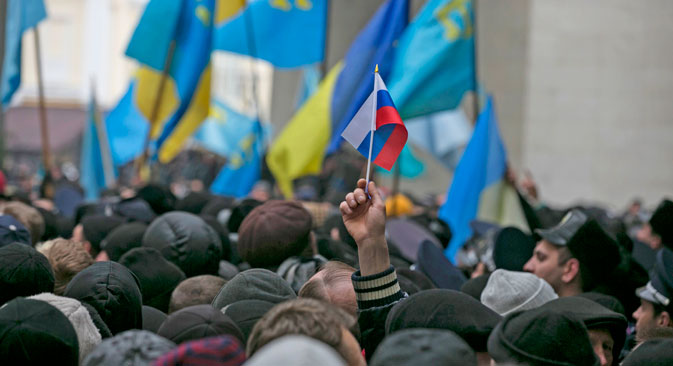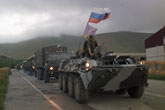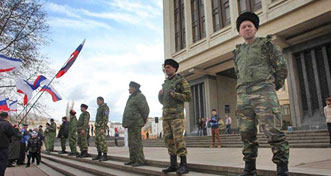Crimea just another link in the chain of crises

On March 16, Crimea will hold a referendum in which residents will decide if they want to be part of Russia or Ukraine. Source: Reuters
The recent events in Ukraine and Crimea have again highlighted the conflict between territorial integrity and self-determination. This conflict has played out in several different ways in the past 40 years.
Cyprus
In July 1974, a military coup took place on the island of Cyprus with the backing of the Greek government.
Makarios III, the first president of the Republic of Cyprus and an archbishop in the Greek Orthodox Church, was removed from power and control of the island was passed to Nikos Sampson, a representative of an underground organization that advocated the accession of Cyprus to Greece.
In response, Turkish troops were sent into Cyprus to protect the interests of the Turkish population. Military action led to a division of the island. Although technically the entire island is the Republic of Cyprus, the northern third of the island is controlled by Turkey and calls itself the Turkish Republic of Northern Cyprus, although this status is not recognized by any UN member state except for Turkey.
Kurdistan
After the breakup of the Ottoman Empire, colonial powers divided the traditional homeland of the Kurdish people among four countries – Iraq, Iran, Syria and Turkey. In 1991, the Iraqi Kurds rebelled against the government of Saddam Hussein and the U.S. supported them by establishing a no-fly zone over northern Iraq.
Today Iraqi Kurdistan is an autonomous region that exists almost completely independently of Baghdad.
Eritrea and South Sudan
Because the borders of most African states were drawn by colonial powers with no concern for the homelands of local ethnic groups, many modern African countries are made up of people who speak different languages and have different traditions and beliefs.
In recent years efforts to adjust these arbitrary borders have been taken with the separation of Eritrea from Ethiopia in 1993 and the creation of South Sudan out of Sudan in 2011.
These new states appeared with the backing of the UN and assistance from the United States and Europe.
Frozen conflict zones
Africa is also home to a frozen conflict zone, Western Sahara, which was occupied in 1976 by Morocco with the acquiescence of the U.S. and the EU, scuttling a previous plan for self-determination.
However, frozen conflict zones are more common in the former Soviet space. During the 1991-1994 war between Azerbaijan and Armenia, Azerbaijan established its control over the breakaway republic of Nagorno-Karabakh, whose population is mostly Armenian.
Today Nagorno-Karabakh is an autonomous region inside Azerbaijan, but tensions over the region remain high.
Kosovo
In Kosovo in 1999, the principle of self-determination triumphed over territorial integrity when ethnic cleansing against the Albanian population was reported. After years of existing under UN administration, Kosovo became an independent country in 2008.
China
In the return of Hong Kong and Macao to China, the principle of territorial integrity took place of primacy, however, China continues to argue with Japan over the Senkaku/Diaoyu islands and the issue of Taiwan remains unresolved, as does autonomy for Tibet.
These examples show that despite the creation of the UN and the developed system of international law, power is still the most powerful factor in solving problems between states. Without exception, the resolution of inter-state conflicts defers to geopolitical considerations.
As long as this reality persists, it will be impossible to establish an effective mechanism for conflict resolution and similar crises will arise again and again.
All rights reserved by Rossiyskaya Gazeta.
Subscribe
to our newsletter!
Get the week's best stories straight to your inbox

